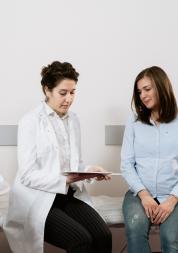Improving the practice of hospital discharge and the provision of after care in Wandsworth.

What we did
Discharge from hospital is a key issue at the interface between health and social care.
It has been known as a problem and documented over the past two decades. A number of difficulties in the process remain, including the different funding and governance arrangements, and the number of agencies and professionals involved in the discharge process.
In 2008-09 Wandsworth LINk made the improvement of the practice and services involved in hospital discharge, one its priorities.
In June 2010, the Wandsworth Enter and View team undertook two visits to St George’s Hospital wards focusing on patients who were expecting to be discharged that day.
We also spoke to borough residents who had recently experienced hospital discharge or were the carer of such a person.
What we found
Many patients were not satisfied with their experience of being discharged from hospital due to:
- Delays between being told of their discharge and transportation becoming available.
- Failure to make the patient feel involved in the decisions regarding their discharge from the hospital.
- After-care not being arranged and insufficient information about to how to care for wounds.
There were also issues with:
- Discharge coordinators not working at weekends, no formal cover for them when they are away from work, consequently delaying the discharge process.
- Patients and carers being confused by conflicting messages from different members of the staff team – 'Medically fit for discharge' did not necessarily mean that the patient was ready for discharge because, often transport arrangements, medication and therapy assessments were still to be completed.
Our recommendations
Based on our findings we recommend the following:
- The role of Discharge Coordinator should be extended and strengthened so that there is cover at weekends and when they are away. Also, Discharge Coordinators should be given the authority to confirm the time of discharge only when both medical, therapy assessments, medication and paperwork are complete. Patients should be informed that it is only when the Discharge Coordinator has done this that they will be discharged.
- On leaving hospital, all patients should have a medical discharge summary and information about after-care to take with them. Copies should be sent to their GP that day, preferably electronically. The full care and medical plan should be copied to the patient (or carer) and sent promptly.
- Significant carers should always be included in the consultations made by hospital staff prior to discharge.
- The discharge check list should have spaces where separate carer/family contacts can be recorded and the contacts uses to check discharge plans before discharge goes ahead.
- There needs to be consideration given as to how to reduce delay in getting the patient medicines. Though hospital pharmacies are busy, it may be that they can be given earlier notice of the patients intended discharge day and medication requirements.
- Particular attention must be given to patients who are returning to homes where they had been living independently and where, subsequent to hospital discharge, they may be unable to cope without first putting in place social care.
Downloads
If you need this report in a different format please e mail
enquiries@healthwatchwandsworth.co.uk or call 020 8516 7767

